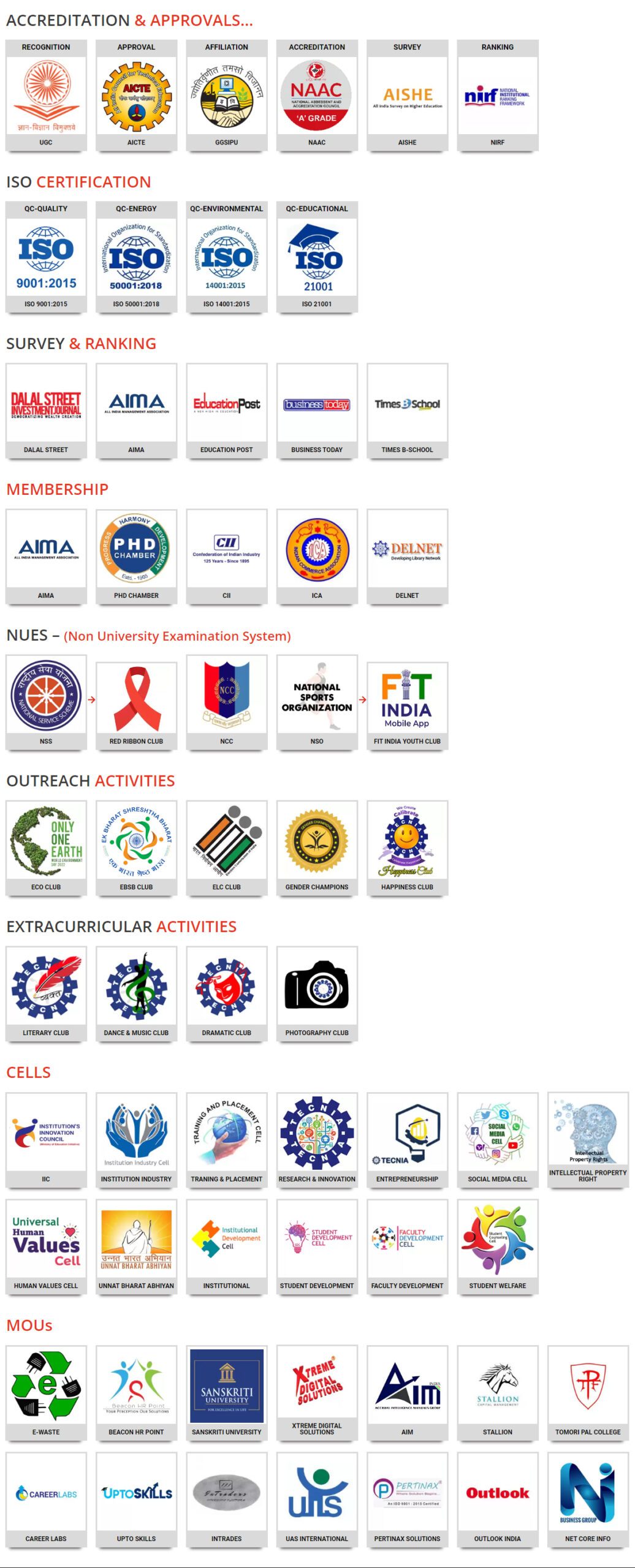IQAC
- INTRODUCTION
- COMPOSITION
- MINUTES OF MEETING
- AQAR
- DVV
- SSR
- MANUAL
- RECOGNITIONS & CERTIFICATES
- IQAC INITIATIVES
- NIRF
- POLICIES
- BEST PRACTICES
- CODE OF CONDUCT
- ORGANOGRAM
- STRUCTURED FEEDBACK
INTRODUCTION
The NATIONAL ASSESSMENT AND ACCREDITATION COUNCIL (NAAC) conducts assessment and accreditation of (HEI) recognized institution to undertake the ‘Quality Status’ of the institution. NAAC evaluates the institutions for its conformance to the standards of quality in terms of its performance related to the educational processes and outcomes, curriculum coverage, teaching-learning processes, faculty, research, infrastructure, learning resources, organization, governance, financial well being and student services. In pursuance of above for its performance evaluation, assessment & accreditation & quality up-gradation of higher education, NAAC proposes to establish an Internal Quality Assurance Cell (IQAC) as a post- accreditation quality sustenance measure. Since quality enhancement is a continuous process, the IQAC will become a integral part of the institution’s system & work towards realization of the goals of quality enhancement & sustenance. The prime task of the IQAC is to develop a system for conscious, consistent & catalytic improvement in the overall performance of the institute for the post-accreditation period, it will channelize all efforts & measures of the institution towards promoting its holistic academic excellence. The Tecnia Institute of Advanced Studies was accredited on 11-Sept.-2017 with CGPA of 3.11 of ‘A’ Grade by NATIONAL ASSESSMENT AND ACCREDITATION COUNCIL. IQAC established at Institute continued to strive for the betterment of systems, processes and policies setup. The NAAC visited the Institute Campus from 28 th – 29 th August 2017 (First Cycle) taking the tangible efforts to further has established a concrete Tecnia-IQAC hosting in TIAS-ERP in Institute.VISION
To shape and certify the quality culture in the Institute with an intention of assured all round excellence.MISSION
To channelize the efforts and establish the actions of the institute towards quantify academic and administrative talent and to be the change agent for leading and remove deficits to enrich the qualityGOALS
IQAC shall evolve mechanisms and procedures for:-- To ensure timely, efficient and progressive performance appraisal of academic, administrative and financial tasks
- To ensure relevance and quality of academic and research programmes
- To develop equitable access to and affordability of academic programmes for various sections of society
- To optimize and integrate modern methods of teaching and learning
- To ensure credibility of evaluation procedures; adequacy, maintenance and functioning of the support structure and services
- To develop research sharing and networking with other institutions in India and abroad
DOLES
The doles of the IQAC are:-- To contribute meaningfully to ensure heightened level of clarity and focus on institutional functioning towards quality enhancement through internalization of the quality culture
- To act as a nodal agency in the Institute to empower, integrate and coordinate among various quality-related activities including adoption dissemination and institutionalize of best practices, for quality outcomes
- To build an organised methodology for decision-making, quality changes, documentation of the various programmes/activities to improve institutional functioning and internal communication for quality improvement
ROLES
The roles of the IQAC are:-- To develop, disseminate information and application of quality benchmarks for various academic and administrative activities of higher education.
- To facilitate the creation of a learner-centric environment conducive to quality education and faculty maturation to adapt the required knowledge and technology for participatory teaching and learning process
- To establish network to coordinate, facilitate and implement feedback response on quality- assurance initiatives by involving the stakeholders
- from students, parents and other stakeholders
- To organize inter and intra institutional workshops, seminars on quality related themes and promotion of quality circles
- To develop and maintain institutional database through TIAS-ERP (MIS) for the purpose of maintaining, enhancing, quality culture in the institution.
- Periodical conduct academic and administrative audit and its follow-up to prepare the Annual Quality Assurance Report (AQAR) as per guidelines and parameters for onward submission to NAAC
Minutes Of Meeting
IQAC initiatives
|
POLICIES
|
Student Satisfaction Survey
Online Form
Student Feedback on System
Online Form
Parent Feedback
Online Form
Employer’s Feedback
Online Form
Faculty Feedback
Online Form

Feedback Report 2020-21
Feedback Report 2019-20










